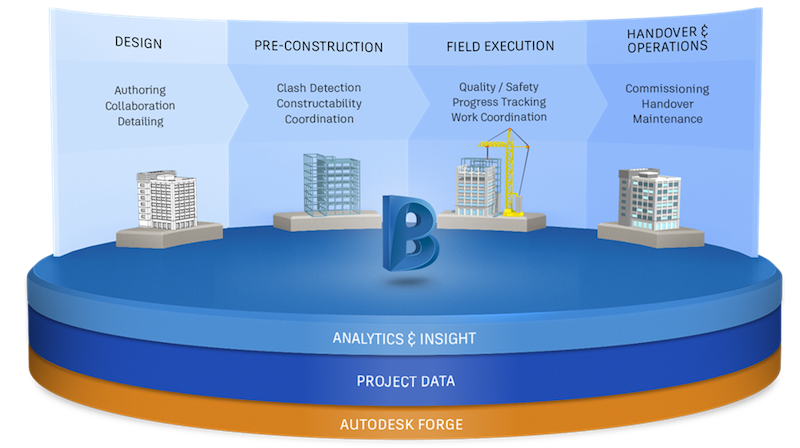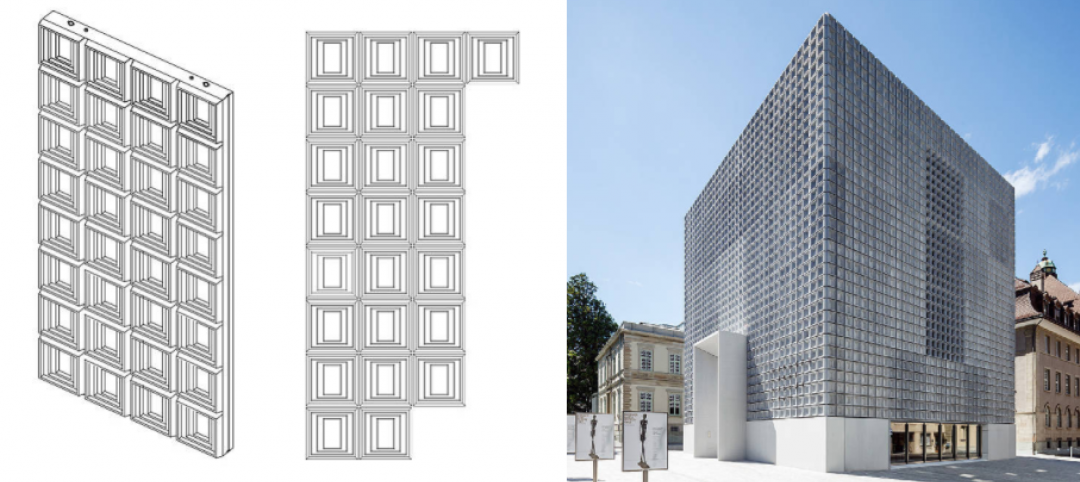This month, Autodesk will be rolling out its next generation of BIM 360 products that will include BIM 360 Design and BIM 360 Build modules (https://bim360.autodesk.com), making this suite the industry's first unified design-construction platform. BIM 360 is built on top of Forge, Autodesk’s cloud-based software platform, which the company launched in 2015.
In fact, all of Autodesk’s products are now built onto Forge, which makes it easier for the company to “expose the innards of technology” through a variety of application program interfaces, says Jim Lynch, Vice President of Autodesk’s BIM 360 Construction Line Group.
By opening Forge to the industry’s eco system, more of Autodesk’s customers have been building products that integrate seamlessly with that platform. One such example is Assemble Systems, a preconstruction planning tool. Indeed, since introducing this partnership program last November at its Autodesk University event, there have been 46 completed integrations on the exchange (https://integrations.bim360.autodesk.com), and another 90 in the works.
Expanding this eco system is important, explains Lynch, because it would be nearly impossible for Autodesk alone to meet all of the AEC industry’s different needs and requirements.
The goal, says Lynch, is the make the construction process easier, from design to commissioning, “so that there’s more end-to-end transparency.”
Third-party suppliers that want to become part of this network need to apply, although Lynch says that the entry bar is “pretty low.” In fact, competing companies that offer software that does pretty much the same thing as others on the exchange are welcome onto the Forge platform. (Lynch says that Autodesk might even invest in the ones it prefers.)
However, in building this app exchange, Lynch says Autodesk more interested in cultivating quality than quantity to help users connect and store their data. “What we’re trying to say is, if you work with Autodesk, you have the opportunity to put all of your information into one place. We’re putting everything on the cloud and offering customizable solutions.”
Related Stories
| Aug 11, 2010
Seven tips for specifying and designing with insulated metal wall panels
Insulated metal panels, or IMPs, have been a popular exterior wall cladding choice for more than 30 years. These sandwich panels are composed of liquid insulating foam, such as polyurethane, injected between two aluminum or steel metal face panels to form a solid, monolithic unit. The result is a lightweight, highly insulated (R-14 to R-30, depending on the thickness of the panel) exterior clad...
| Aug 11, 2010
Nurturing the Community
The best seat in the house at the new Seahawks Stadium in Seattle isn't on the 50-yard line. It's in the southeast corner, at the very top of the upper bowl. "From there you have a corner-to-corner view of the field and an inspiring grasp of the surrounding city," says Kelly Kerns, project leader with architect/engineer Ellerbe Becket, Kansas City, Mo.
| Aug 11, 2010
AIA Course: Historic Masonry — Restoration and Renovation
Historic restoration and preservation efforts are accelerating throughout the U.S., thanks in part to available tax credits, awards programs, and green building trends. While these projects entail many different building components and systems, façade restoration—as the public face of these older structures—is a key focus. Earn 1.0 AIA learning unit by taking this free course from Building Design+Construction.
| Aug 11, 2010
AIA Course: Enclosure strategies for better buildings
Sustainability and energy efficiency depend not only on the overall design but also on the building's enclosure system. Whether it's via better air-infiltration control, thermal insulation, and moisture control, or more advanced strategies such as active façades with automated shading and venting or novel enclosure types such as double walls, Building Teams are delivering more efficient, better performing, and healthier building enclosures.
| Aug 11, 2010
Glass Wall Systems Open Up Closed Spaces
Sectioning off large open spaces without making everything feel closed off was the challenge faced by two very different projects—one an upscale food market in Napa Valley, the other a corporate office in Southern California. Movable glass wall systems proved to be the solution in both projects.
| Aug 11, 2010
AIA course: MEP Technologies For Eco-Effective Buildings
Sustainable building trends are gaining steam, even in the current economic downturn. More than five billion square feet of commercial space has either been certified by the U.S. Green Building Council under its Leadership in Energy and Environmental Design program or is registered with LEED. It is projected that the green building market's dollar value could more than double by 2013, to as muc...
| Aug 11, 2010
Thrown For a Loop in China
While the Bird's Nest and Water Cube captured all the TV coverage during the Beijing Olympics in August, the Rem Koolhaas-designed CCTV Headquarters in Beijing—known as the “Drunken Towers” or “Big Shorts,” for its unusual shape—is certain to steal the show when it opens next year.
| Aug 11, 2010
World's tallest all-wood residential structure opens in London
At nine stories, the Stadthaus apartment complex in East London is the world’s tallest residential structure constructed entirely in timber and one of the tallest all-wood buildings on the planet. The tower’s structural system consists of cross-laminated timber (CLT) panels pieced together to form load-bearing walls and floors. Even the elevator and stair shafts are constructed of prefabricated CLT.
| Aug 11, 2010
Integrated Project Delivery builds a brave, new BIM world
Three-dimensional information, such as that provided by building information modeling, allows all members of the Building Team to visualize the many components of a project and how they work together. BIM and other 3D tools convey the idea and intent of the designer to the entire Building Team and lay the groundwork for integrated project delivery.
Concrete | Aug 11, 2010
8 Innovations That Will Rock Your Next Concrete Project
If you think you've seen it all when it comes to concrete construction, then you haven't sat down with Blaine Brownell. The architect-turned-blogger-turned-author has become the industry's foremost expert in everything that is unconventional and provocative in the building products field. For the past eight years, this LEED Accredited Professional, BD+C “40 Under 40” winner, and vis...








